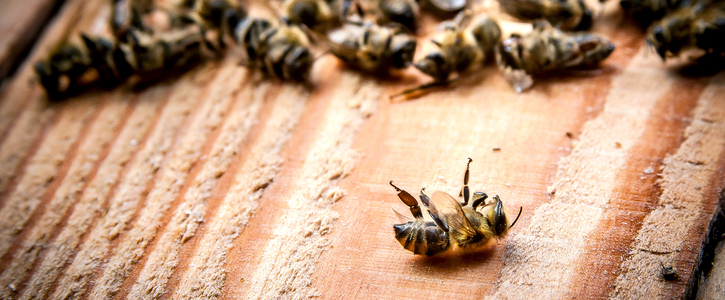100 signatures reached
To: Winchester City Council
Stop using Glyphosate weed killer

Stop the routine and widespread use of chemical weed killers such as Glyphosate in the Winchester district and instead use known alternatives. Winchester City Council has demonstrated a commitment to increasing biodiversity but the use of weedkillers undermines this.
Why is this important?
Research shows that herbicide use has multiple harmful effects on human and animal health, and causes environmental pollution and degradation.
Glyphosate has, according to recent studies, been linked to the death of bees. It weakens their gut bacteria making them more susceptible to disease leading to a higher bee mortality rate. Bees play an essential role in our ecosystem because of their primary mission, which is pollination. This action allows plants to reproduce. Bees are among the most effective pollinating insects alongside wasps and butterflies. Globally, there are more honey bees than any other pollinating insects. They are vital to pollinate the plants that produce the food that we eat to survive.
Pollination is vital to the health of the global food system. And a single bee colony can pollinate 300 million flowers in one day. If the bees go extinct, a ripple effect will be felt through the ecosystems, such as a plant die-off that will impact the entire food chain. "The absence of bees and other pollinators would wipe out coffee, apples, almonds, tomatoes, and cocoa, to name just a few of the crops that rely on pollination," Graziano da Silva, scholar and director-general of the Food and Agriculture Organization from 2012 to 2019.
There have been 3 successful lawsuits against Monsanto (now owned by Bayer), which brought glyphosate-based herbicides to the market in the 1970s, and there are many more cases going to trial.
Nineteen countries have already either banned or restricted the use of glyphosate, and 5 more have plans to do so imminently. Many towns and cities across the world have made the decision to go pesticide-free, using methods such as hot-foam, flame weeding, scraping, acetic acid solution and accepting a certain level of ‘weediness’.
Glyphosate has, according to recent studies, been linked to the death of bees. It weakens their gut bacteria making them more susceptible to disease leading to a higher bee mortality rate. Bees play an essential role in our ecosystem because of their primary mission, which is pollination. This action allows plants to reproduce. Bees are among the most effective pollinating insects alongside wasps and butterflies. Globally, there are more honey bees than any other pollinating insects. They are vital to pollinate the plants that produce the food that we eat to survive.
Pollination is vital to the health of the global food system. And a single bee colony can pollinate 300 million flowers in one day. If the bees go extinct, a ripple effect will be felt through the ecosystems, such as a plant die-off that will impact the entire food chain. "The absence of bees and other pollinators would wipe out coffee, apples, almonds, tomatoes, and cocoa, to name just a few of the crops that rely on pollination," Graziano da Silva, scholar and director-general of the Food and Agriculture Organization from 2012 to 2019.
There have been 3 successful lawsuits against Monsanto (now owned by Bayer), which brought glyphosate-based herbicides to the market in the 1970s, and there are many more cases going to trial.
Nineteen countries have already either banned or restricted the use of glyphosate, and 5 more have plans to do so imminently. Many towns and cities across the world have made the decision to go pesticide-free, using methods such as hot-foam, flame weeding, scraping, acetic acid solution and accepting a certain level of ‘weediness’.

